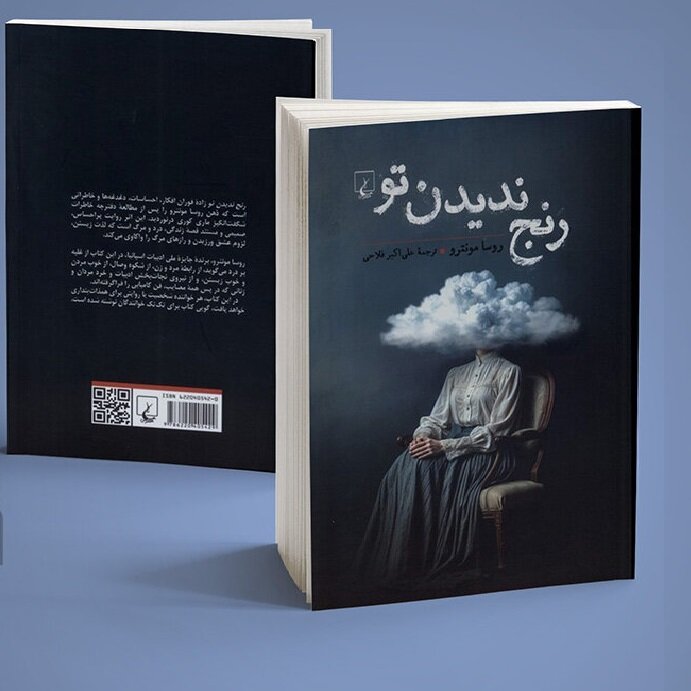Award-winning Spanish author Rosa Montero’s 2013 novel published in Persian

TEHRAN-The Persian translation of the book “The Ridiculous Idea of Not Seeing You Again” written by the Spanish author Rosa Montero has been released in the bookstores across Iran.
Ali Akbar Fallahi has translated the book, which has been brought out by Qoqnoos Publishing Group, ILNA reported.
When Montero read the wonderful diary that Marie Curie started after the death of her husband, and which is included at the end of this book, she felt that the story of this fascinating woman who faced her time filled her head with ideas and emotions.
Based on Curie's extraordinary career, Montero constructs a narrative halfway between personal memory and the memory of everyone, between the analysis of our times and intimate evocation. These are pages that speak of overcoming pain, of the relationships between men and women, of the splendor of a beautiful life, of science and ignorance, of the saving power of literature, and of the wisdom of those who learn to enjoy existence fully and lightly.
Lively, free and original, this unclassifiable book includes photos, memories, friendships and anecdotes that convey the primitive pleasure of listening to good stories.
Rosa Montero, 73, is a Spanish journalist and author of contemporary fiction. In 1975, she graduated with a degree in journalism from the Official School of Journalism in Madrid. She also studied psychology at the Complutense University of Madrid (1969-1972).
She worked with independent theater groups such as Tábano, and in 1970 participated in their renowned production, Castañuela 70. Since 1970, she has worked as a television, newspaper, and magazine journalist. Since 1977, she has worked in exclusivity for El País, Spain's best-selling newspaper, and she served as the editor-in-chief of its Sunday magazine from 1980-1981.
Her journalism appears regularly in various Latin American newspapers, such as Clarín (Argentina) and El Mercurio (Chile). Her articles have also appeared abroad in publications such as Stern (Germany), Libération (France), La Montagne (France), and The Guardian (United Kingdom).
Throughout her career she has conducted more than 2,000 interviews, and her interview technique is studied in journalism schools throughout the Spanish-speaking world. Some of her most notable interview subjects include Ayatollah Ruhollah Khomeini, Indira Gandhi, Richard Nixon, Julio Cortázar, and Malala Yousafzi.
Her articles have been taught in Spain's secondary schools for decades, and they appear on university entrance exams. They are also taught outside of Spain. In 2012. she was awarded a prize for the use of her work in Spanish language instruction in France.
She has taught literature and journalism at several universities in Spain, the U.S. and the U.K. She has also participated in hundreds of symposiums and conferences all over the world.
Among the awards she has won for her journalism are the World Interview Prize (1978), the National Prize for Literary Journalism (1980), and the Press Association of Madrid Award for career achievement (2005).
In over 40 years, she has written 20 novels and also published some story collections. Her novels have been adapted into various art forms, including theatrical works, short films, a feature film, an opera, and art installations, both in Spain as well as throughout Europe and the Americas.
Montero's work has made an enormous impact on the Spanish-speaking world. Ten books have been written about her, and studies of her work have appeared in more than 60 volumes. Her work has been examined by some 30 doctoral theses and more than 120 articles published in academic journals and conference proceedings. Her books have been translated into more than 20 languages.
She has received an Honorary Doctorate from the University of Puerto Rico. In 2017, she was awarded the National Prize for Spanish Literature. In the same year, she also received both a career achievement award from the International Press Club and the Manuel Alcántara International Journalism Award, given by the University of Málaga.
SS/SAB
Leave a Comment